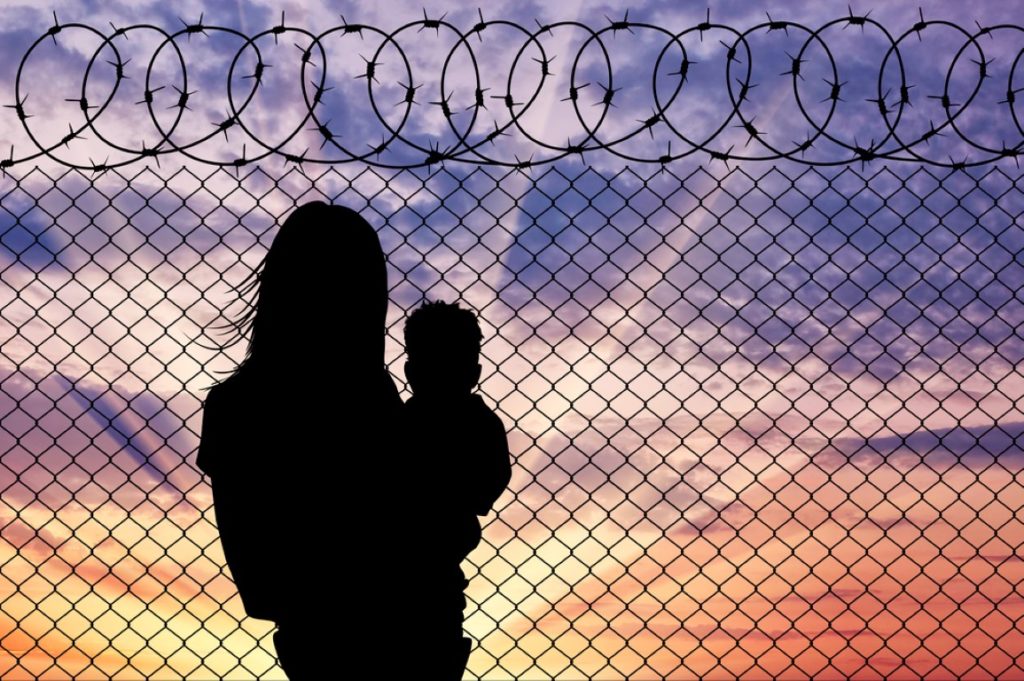At that time, the users of the space are, for some time, the same. Mostly elderly people, from many origins, form groups, sometimes heterogeneous (including people from England, Holland, India, Bangladesh, Russia, Moldova, etc.), others not so much.
While doing their treatments, they chat excitedly. The usual topic is food, but these days, the group that has now formed has changed the subject, distancing itself, in the true and literal sense of the word, because, every now and then, Ukraine comes. There is a lady who always stands out, because she expresses, loudly and continuously, opinion and with her wonderful and thick Algarve accent.
– “Oh, girl, I can't see so much war news! Poor those people! », she said, sympathetically, being followed by others in concern. And with the conversation flowing, someone mentions that we are now going to receive many refugees.
– 'Well, you know, that's what you don't agree with! They're all coming around and we're going to be the ones who are going to take care of it, because we're going to lose our employees! My granddaughter, poor thing, can't work and these people come to take what's ours! If you were us, no one cared, don't even come to defend us!"
Loud and clear. I thought, as I listened, that silence would follow, that someone would respond and argue, that there would be a contradiction. But, to my amazement, all the participants in the conversation agreed, shouted and, from being fervently supportive and socially charitable Portuguese, brothers of the Ukrainian people, became fearful distrustful of the consequences of the arrival of those fleeing the war.
I was silent, in the corner where no one saw me, where I usually am, without participating in these conversations, doing my treatment and, inside me, a wave of feelings, memories grew, so that the tears ran down my face, I confess .
The memory came to me of the night when, fleeing the war, I arrived in Lisbon, I received bread, an apple, water and a coat from the Red Cross at the airport, because it was cold and I didn't have appropriate clothes, I didn't even know if I would have a meal in addition to what came in that little bag; in fact, it had nothing; came the memory of the dinner that same night, taken at the Military College, among many others like me, a resource meal, meager, because there were many of us… and sad; came the memory of a family member, in whose house we stayed for a few days, who had a bag with bread stuck to the kitchen door, but said there was no more, when I ordered another toast for breakfast; came the memory of the lady, an indirect family member, who closed the steaks on the bedside table and gave my mother the key to go get one, so that she could cook it for her, just for her…
The ability to put ourselves in the other's shoes has a lot to say. Solidarity is not a bunch of pious words, which are repeated without ever being applied. And when doubts about the impact of these gestures attack us, the tendency is to go back, to return to a place that is so human, so human, but which is so sad, so sad: selfishness. In this place, vision is blurred and reason does not work, because we are unable to see beyond our own navel. There, in that place, solidarity dies.
There are so many jobs in Portugal that are neither wanted nor occupied by nationals. See what happens in the Alentejo greenhouses. Look at the Algarve restoration, which lacks so much manpower. A few days ago, the well-known Algarve chef Noélia noted this: she offers one thousand euros to anyone who works with her, but she is unable to fill the vacancies. See who occupies positions in construction.
Refugees need help, but they don't need dirty laundry (like the one that is now delivered to many collection centers and I know what I'm talking about, because I know who threw it, embarrassed, in the trash); they need a house, but not a shelter for a few days, as the high season is about to arrive and then the apartments have to be rented out to tourists and put on the market.
Above all, they really need someone who understands or makes an honest effort to try to understand what it's like to leave everything behind; of someone who knows what it's like to leave the house under the fire of bullets to buy food; they need to speak, to be silent, to cry, to smile, to live… Like us. Because, believe me, we may have been us one day, we could be us tomorrow, in a time that we can't take for granted and guaranteed.
Back in 1975, the discourse was the same and, however, the refugees who arrived were Portuguese, as Portuguese as those who lived here. And you know what? They created jobs, created wealth, helped others, because they didn't hide behind the fear and sadness of losing everything. They started over and kept the pain to themselves, crying over them, just like me, in these hours when we go back in time and life proves to us that, in fact, there are things that remain, even if latent. And I'm sure it will be the same with the Ukrainians.
That afternoon, all I had to do was ask one question, the possibility of which an answer makes me very curious: -“What if I were you?”
Slava Ukraini! Live the peace!
Final note (which could also be a preview): I express here my respect for the Algarve and their pronunciation, which I love and reproduce with true pride of an “almost” daughter of the land. I would also like to express my respect and admiration for the vast majority of the Portuguese people, to whom I recognize great qualities, including the ability to truly show solidarity.




















Comments